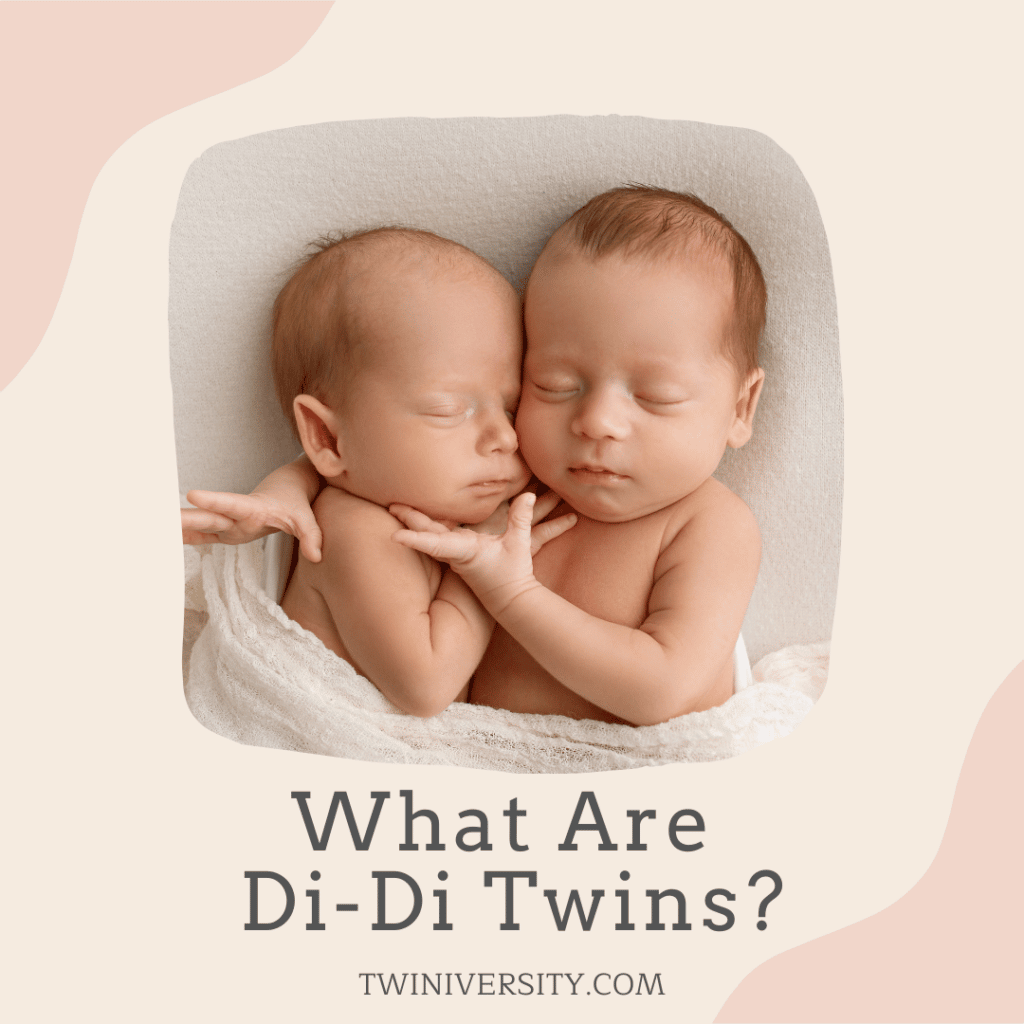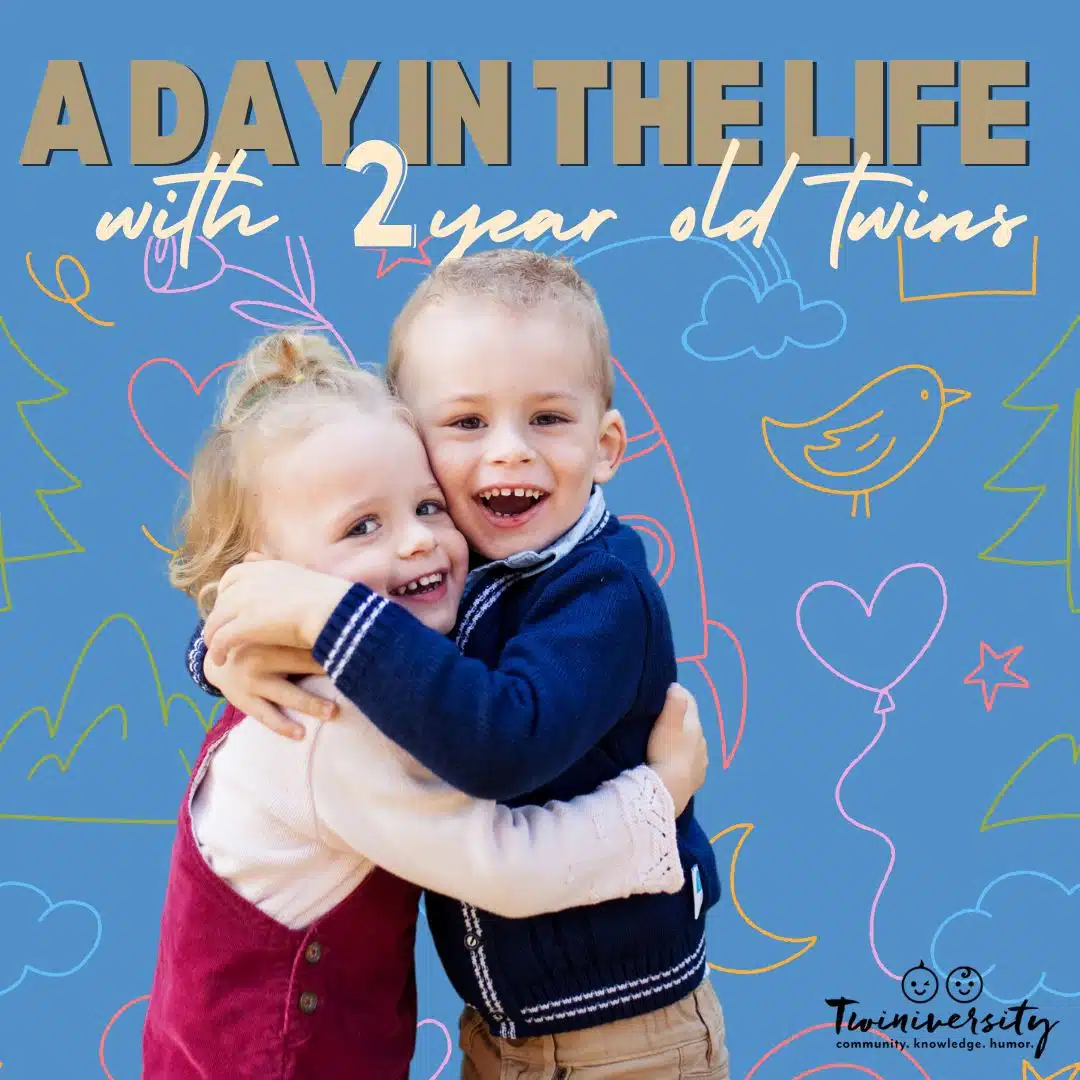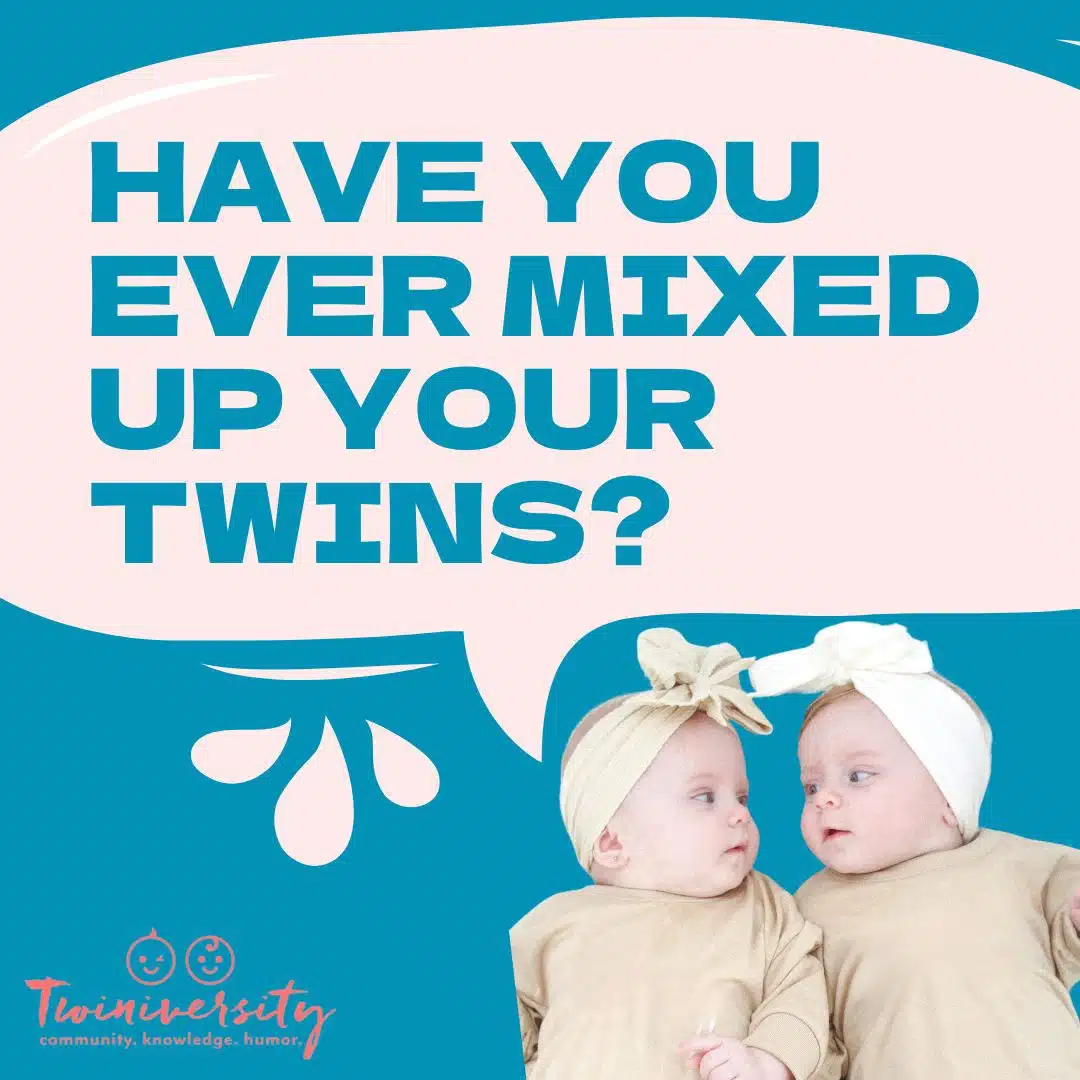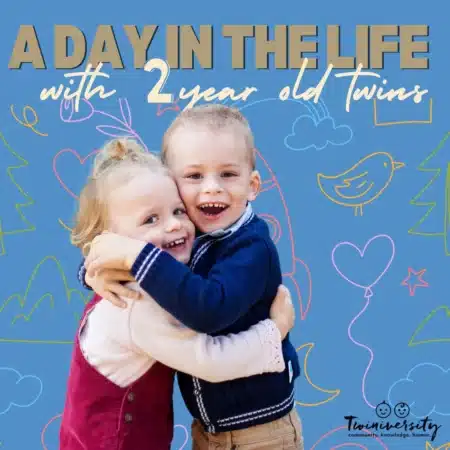Last updated on April 11th, 2024 at 03:04 pm
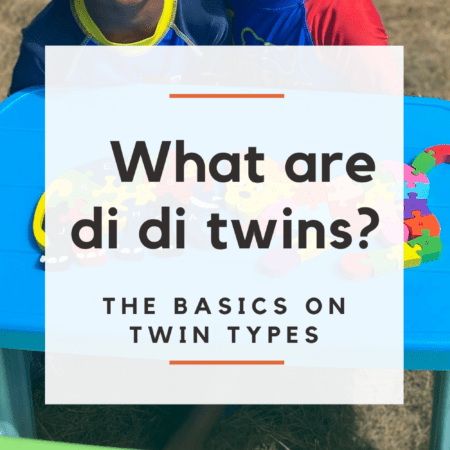


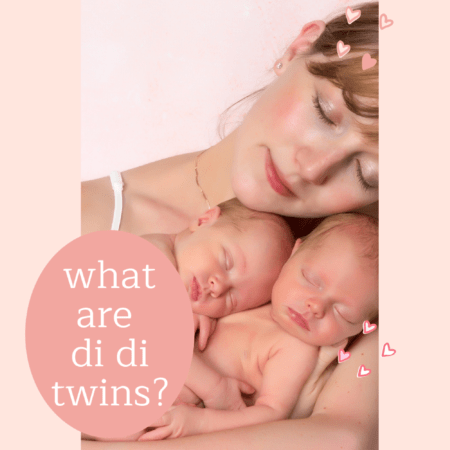
You’ve gotten your first ultrasound and your doctor has shared the joyous news: you’re having di-di twins! While you’re feeling all the emotions, you might also have some questions, including what exactly “di-di twins” means. If you’re having trouble understanding the type of twins you’re carrying, we can help clear up any confusion. Read on to learn more about di-di twins and what to expect from your di/di twin pregnancy.
Disclaimer: All content on this website, including medical opinions and any other health-related information, is for informational purposes only and should not be considered to be a specific diagnosis or treatment plan for any individual situation. Use of this site and the information contained herein does not create a doctor-patient relationship. Always seek the direct advice of your own doctor in connection with any questions or issues you may have regarding your own health or the health of others.
What Does “Di/Di” Mean for Twins?
“Di-Di” is short for dichorionic-diamniotic. Simply put, this means that you’re carrying two embryos and each one has its own placenta (dichorionic) and its own amniotic sac (diamniotic).
Di Di twins are the most common and least risky type of twin pregnancy, accounting for over 70% of twin pregnancies.
How do I know I’m having Di-Di Twins?
You’re probably familiar with the terms “identical twins” and “fraternal twins,” but this is just the tip of the iceberg. Twin pregnancy starts with the number of eggs fertilized (zygosity). After fertilization, the resulting placentas (chorionicity) and amniotic sacs (amnionicity) will determine what type of twins you’re having.
The most common types of twins are:
- Dichorionic-Diamniotic (di di) twins are commonly known as fraternal twins. They are dizygotic twins, which means they start off as two separate eggs, fertilized by two separate sperm. Each baby has its own placenta and its own amniotic sac.
- Monochorionic-Diamniotic (mo-di or mono-di) twins are known as identical twins. Identical twins are monozygotic twins, which means they start as one egg that splits after fertilization. This results in one placenta and, in the case of mo-di twins, two amniotic sacs.
- Monochorionic-Monoamnioitc (mo-mo or mono-mono) twins are also identical twins. However, the fertilized egg splits late enough that they share both a placenta and one amniotic sac.
Early in your pregnancy, your doctor can use an ultrasound to determine how many placentas and amniotic sacs your babies have. This can often tell you which type of twins you’re expecting. If done early in pregnancy, most ultrasounds will show most di-di twins with distinct amniotic sacs and two separate placentas.
This is important as each type of twins carries risks of complications, however, some are riskier than others. Monochorionic twins, for example, have increased risks for complications such as Twin-Twin Transfusion Syndrome.

Are Di Di Twins Identical or Fraternal?
All fraternal twins are di-di in the womb, and in the majority of cases, di-di twins are fraternal. However, contrary to what your doctor might have said, about 30% of di di twins are identical. Confusing, right?
Well, this happens when a single fertilized egg splits early enough (usually within 1-4 days of fertilization) that each baby develops its own placenta and amniotic sac instead of a shared placenta. Known as di di identical twins, the only way to know for sure if your di di twins may actually be identical is to do DNA testing after they are born.
While identical twins are fascinating, fraternal twins are just as great. Even though they only share 50% of their DNA (no more than a typical set of siblings), di-di twins still have that twin bond and many of the benefits of having twins.
Even better, di di twins pregnancy has a lower risk of complications as they each have their own placentas and amniotic sacs. This makes it easier for both babies to grow healthily during pregnancy with fewer complications. Plus, di-di twins are pretty much the only way you can end up with boy-girl twins.
Have you taken your expecting twins class yet? We offer a great class on demand so you can take it on your own schedule! There are so many video modules covering everything from your twins’ baby registry to your first week at home with twins! Sign up today to get started before your twins arrive.
What Causes Di Di Twins?
Di Di twins can happen in a few different ways. The most common is hyperovulation, also known as multiple ovulation. This happens when more than one egg is released during ovulation. They can drop at the same time, or within a few days of each other. When these eggs are fertilized by two different sperm, you end up with di di twins.
One factor that can influence hyperovulation is age. Experts believe that as the body nears menopause, it may release more eggs at once. This increases your chance of having di-di twins. Anecdotally, it appears that having one set of di-di twins might increase your chances of having a second set as well!
Other causes of di/di twins include some infertility treatments, such as certain medications or hormone therapies that increase the number of eggs produced. There’s also In vitro fertilization (IVF) where it is common to transfer more than one embryo to increase your chances of a successful pregnancy. When two of these embryos implant, you end up with di/di twins.

Are Di Di Twins Genetic (aka do twins run in families)?
You may have heard that twins run in families. While this is technically true, it’s actually hyperovulation that runs in families. Hyperovulation, which is an inherited trait, occurs when your body drops two or more eggs during ovulation. It can only cause di di twins unless one of those dropped eggs splits, resulting in identical twins.
As such, fraternal twins are hereditary but only if the gene is passed down from a parent to their female child. So, even if a male has twins in his family, it won’t increase the chances of having di-di twins as a couple unless the mother has twins in her family as well. That said, their daughter may have an increased chance of having di-di twins if she inherited the trait from either her mother or father!
An easy way to remember this is that it always comes down to Mom. Isn’t that true for so much in life?
Are Di-Di Twins Usually the Same Gender?
While identical twins will always be the same gender, di-di fraternal twins can go either way. You can end up with girl-girl twins, boy-boy twins, or boy-girl twins. In fact, science has found that the most common type of fraternal twins is boy-girl!

RELATED: Best Boy Girl Names to Help You Name Boy Girl Twins
Are Di Di Twins High Risk?
Although di-di twin pregnancy is the least risky type of twin pregnancy, it’s not entirely without risk. Di-di twins increase the chances of pregnancy complications, including gestational diabetes, hypertension, preeclampsia, and preterm labor. Your doctors will know how to care for and treat any complications that may arise.
That said, until complications arise, your doctor will likely treat your pregnancy similarly to a singleton pregnancy with some extra monitoring and doctor’s appointments beginning in the 3rd trimester.
To help prevent or address any complications, your obstetrician may refer you to a Maternal Fetal Monitoring specialist. This doctor checks your babies’ growth regularly to make sure they are developing as they should.
As you near the end of your pregnancy, doctors will keep an eye on your amniotic fluid levels, your cervix measurements, and the condition of your placenta. You will likely receive additional testing, such as non-stress tests.
How Long Will I Carry Di Di Twins?
Di Di twin pregnancy is more high-risk near the end due to the risk of complications. Through increased monitoring and appointments, your doctors will keep an eye out for any difficulties or signs of preterm labor, which can lead to premature birth. While there are still risks, di-di twins can and often do make it to “full-term,” for twins, which is about 38 weeks. It will all come down to the condition of the placentas and the health of your twinnies.
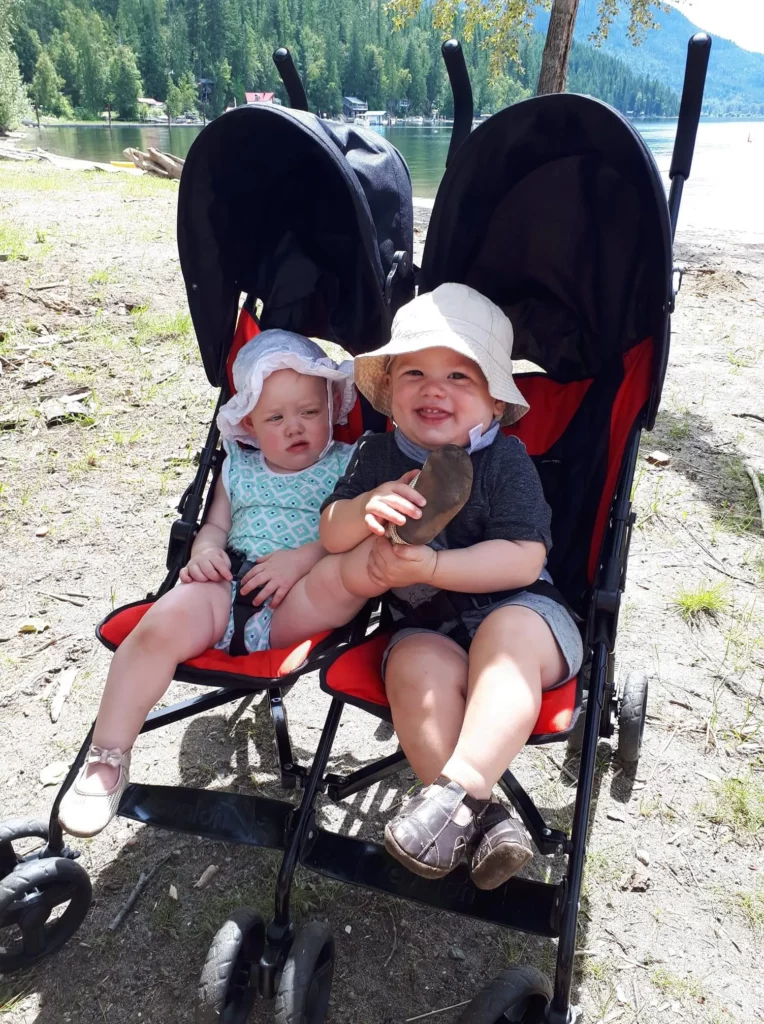

How Are Di Di Twins Delivered?
How you deliver your di di twins will depend largely on their positioning in the womb and your doctor’s comfort level. For uncomplicated di-di twin pregnancies where twin A is head-down, your doctor may recommend a vaginal delivery. Different doctors have different preferences, so be sure to discuss your plans and their abilities early on in your di-di twin pregnancy.
In the event that twin A is head-down and twin B is in a less-than-ideal position, you may still have a vaginal delivery. This will depend on your doctor’s recommendations. That said, you might want to prepare for a double whammy delivery. This is where baby A is born vaginally and baby B is born through an emergency c-section.
You can also opt for a scheduled induction or c-section. The timing of this will depend on your health and that of the babies and any other factors your doctor is considering. Keep in mind that labor complications can arise at any time. For the safest labor and delivery experience, we recommend delivering at your nearest hospital with a level III NICU.

Try Not to Worry When Pregnant with Di Di Twins
Finding out you’re having di-di twins can be scary and exciting. One of the most common pieces of advice that we offer at Twiniversity is this: you do not need to worry until your doctor tells you to worry. Now that you know all about di-di twins and what to expect, focus on the fun parts of your pregnancy. Spend that mental energy picking out all the baby gear instead! And don’t forget to join our Twin Pregnancy Facebook group!

